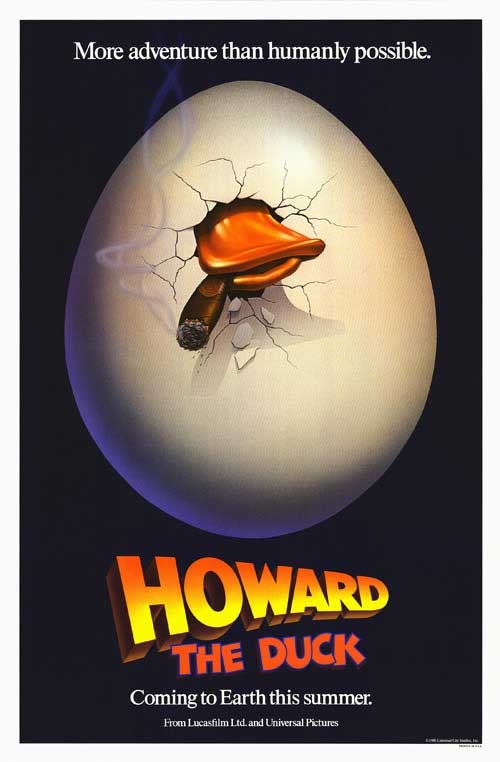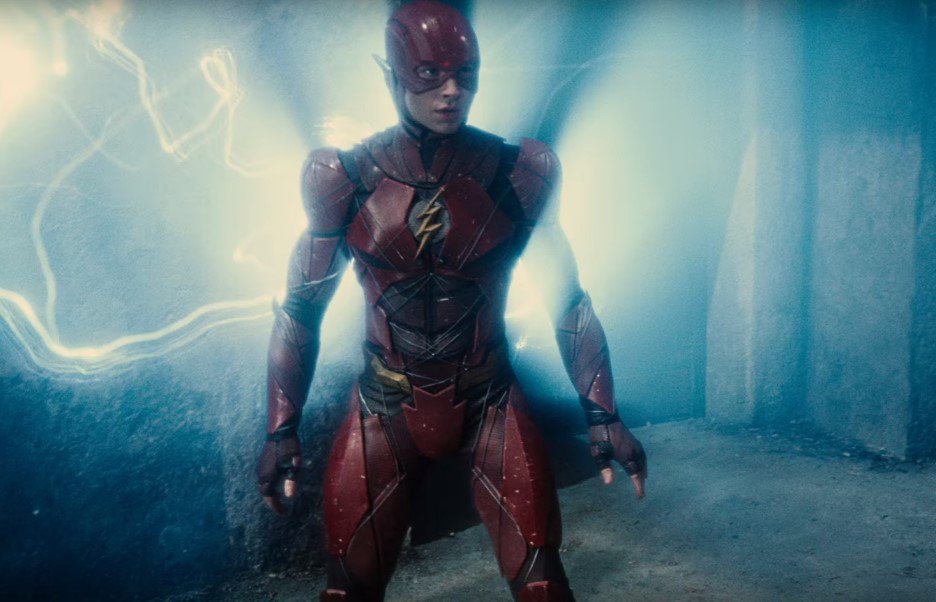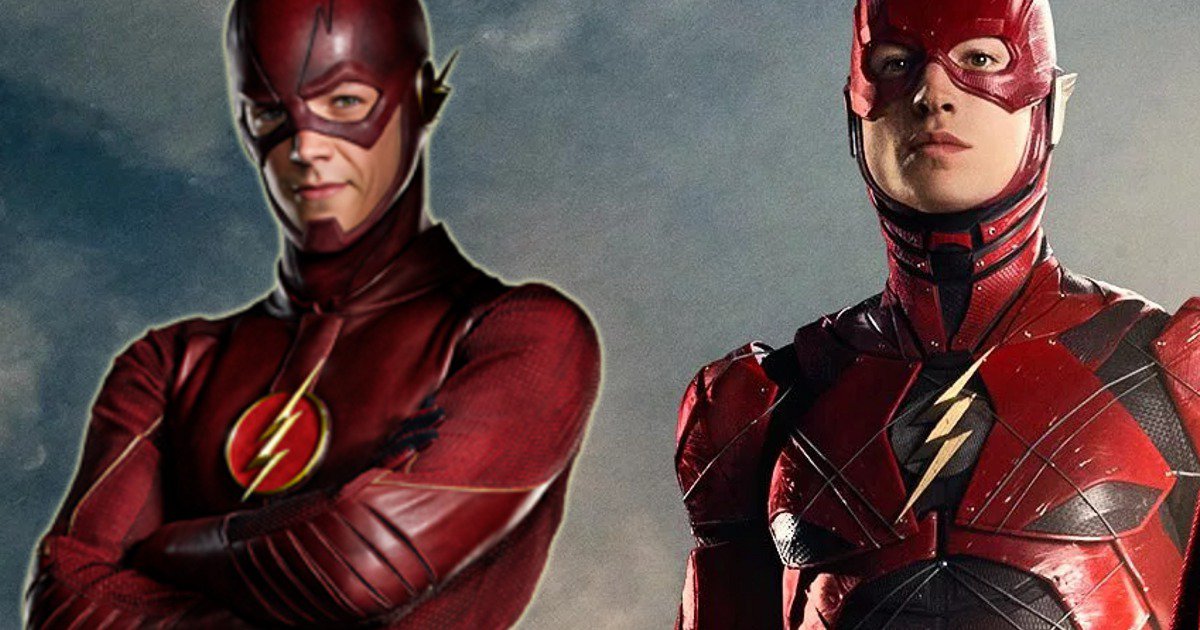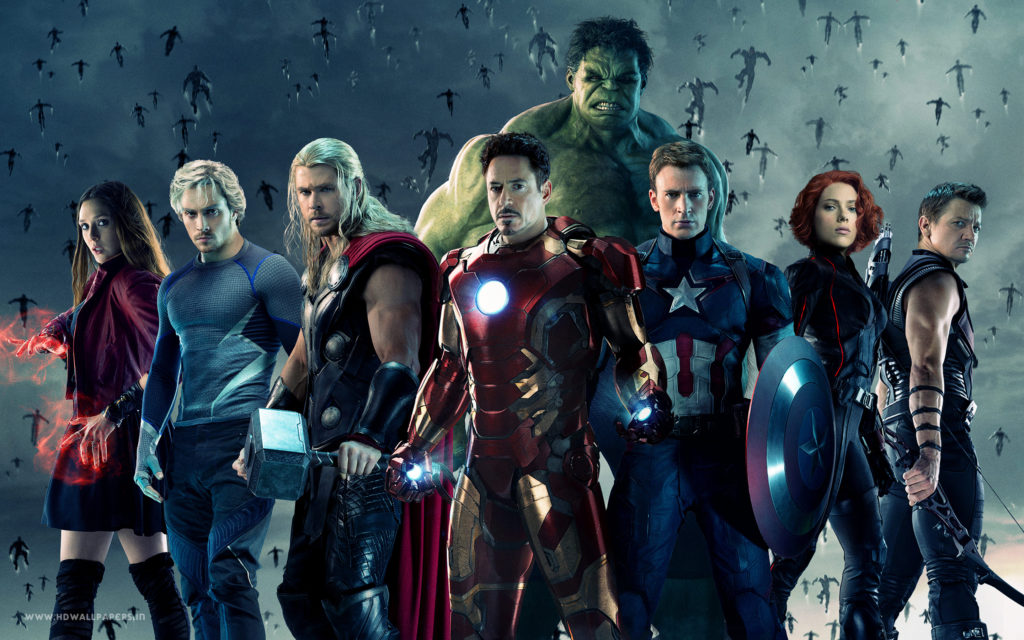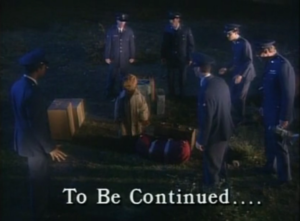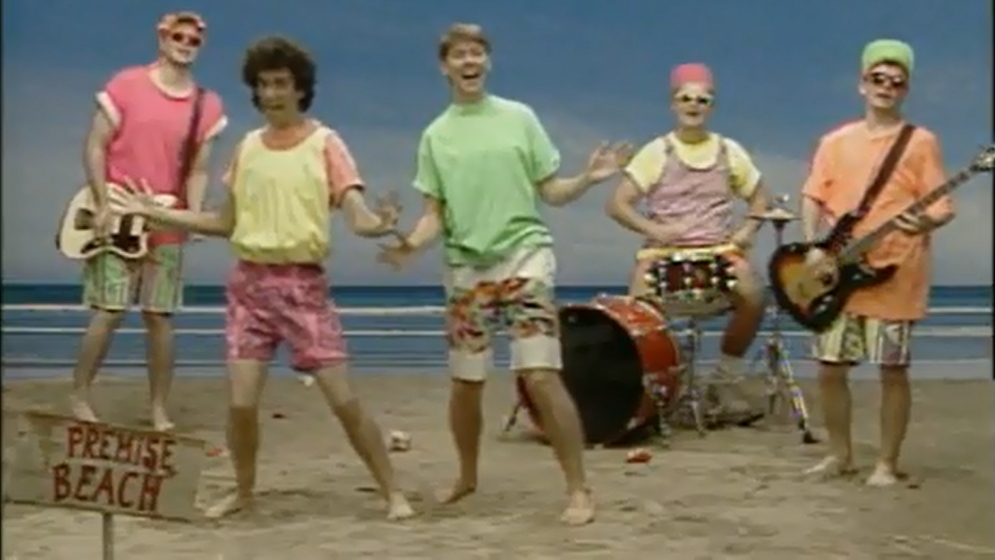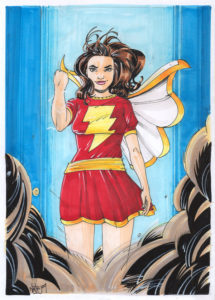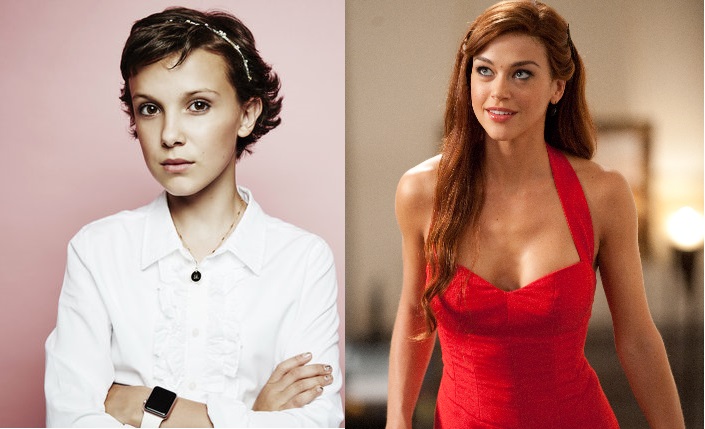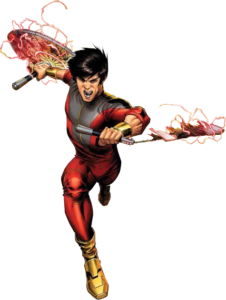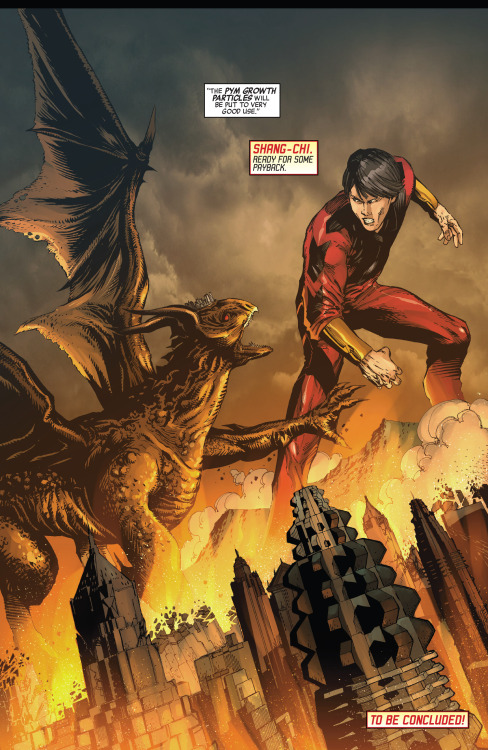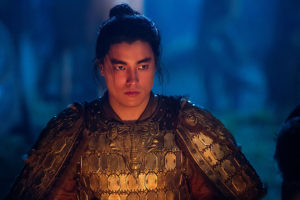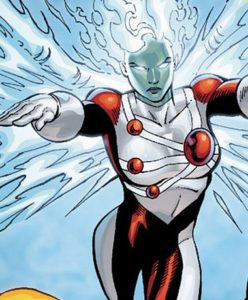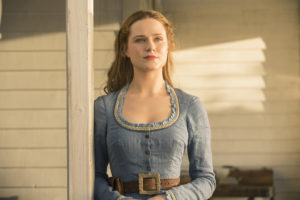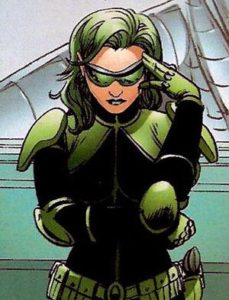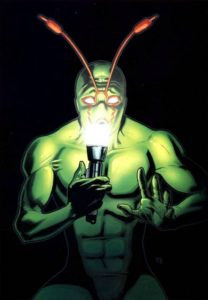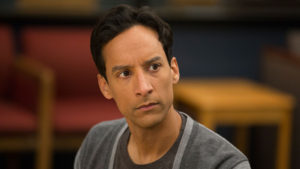The key part of Marvel’s grand film and television strategy is “It’s all connected.” As we’ve discussed earlier, this at best doesn’t seem genuine and at worst feels like a ruse, but regardless, they work it hard. Watch Thor so you can fully understand Avengers. Watch Ant-Man because he’s going to be in Civil War. Please, for the love of Buddha and all his wacky nephews, please please watch Thor: Ragnarok, we promise it’s important for Infinity War.
This brings us to Iron Fist.
After two successful seasons of Daredevil, one knockout season of Jessica Jones, and one so-so but well-viewed season of Luke Cage, the last show Marvel Netflix needs to do before all of their heroes unite in The Defenders is Iron Fist. And they’re counting on you to believe that it’s important. But as you may have seen, the advance reviews suggest that Iron Fist is not only the worst show Marvel Netflix has produced, it’s the worst thing Marvel Studios has produced.
The reviews are right. They’re more right than you know.
But that’s okay. I’m here for you. I will take this bullet, and in the next few blogs, allow you to skip this turd pile and just watch Defenders.
Obviously there will be spoilers. The title should have made that clear.
Let’s begin.
Episode one
First off, can we talk about the fact that the phrase “Iron Fist,” not to mention the power of the Iron Fist, doesn’t appear in this episode? Because we should. We really, really should. By the credits of Daredevil’s first episode he’d beat the shit out of human traffickers. By the end of Jessica Jones’ first episode, Kilgrave had made his first move against Jessica. Even Luke Cage’s slow burn opening managed to showcase Luke’s strength and invulnerability by the end of the first hour. Iron Fist devotes its first hour to something a better show would have burned through in twenty minutes.
Scruffy, dirty, shoeless Danny Rand arrives at his family’s company, asking to see his father’s partner Harold Meachum.
Let’s talk about the “shoeless” part.
Danny, as we will learn, has made his way from the mystical kingdom of K’un-Lun back to some unknown but probably Tibetan part of Earth, fought in some underground fighting clubs, went to Morocco, where he acquired a fake Canadian passport in order to make his way into New York… and apparently he did all of that without shoes.
Why. How? He has a fucking iPod but no shoes? Sure, the second episode implies that it’s the iPod he had when his family’s place crashed 15 years ago, but come on. No 2002 iPod had a battery capable of lasting more than 18 months. Tell me that he has magical kung fu powers and I’ll buy it. Tell me he’s still using a 15-year-old iPod and you’ve lost me. But putting that aside, get some fucking shoes, Danny. The monks of K’un-Lun must have at least had slippers.
No, he lacks shoes for one reason and one reason only… so that the next thirty minutes of him trying to convince somebody, anybody, that he is, in fact, Danny Rand, heir to the Rand fortune, it’ll be believable that they assume he’s some crazy homeless guy.
Frankly they believe that longer than actually makes sense. Not in terms of the world as we know it, but in terms of the larger Marvel Cinematic Universe they would have us believe this is part of. Nobody is willing to entertain the notion that Danny Rand might not have died 15 years ago like they thought, but has returned. And it would be an impossible notion, save for Steve Fucking Rogers. One of the most famous people alive, who came back from the dead after a plane crash seventy years earlier.
But we’ll let that lie.
Literally all that happens in episode one is people refusing to believe that Danny is who he says he is. He meets with his childhood friends… well, one friend and one bully… Joy and Ward Meachum, the children of his father’s partner… only to be thrown out of the building. Twice. He tries to talk to Joy again, no help. He tries a third time, and she drugs him and sends him to a mental hospital. Sure, along the way he meets martial arts instructor Colleen Wing, and also has a homeless man literally Google the exposition for him (it’s actually worse than I made it sound), but that’s the jist of it.
They spend an entire hour on this. They get to “drugged and sent to an asylum” faster than “Oh by the way, here’s why the show’s called ‘Iron Fist.'”
Now what you should be asking, and what the strawman I’m about to use is asking, is “But are the fights good?” Well, no. There are exactly two fight sequences, which take up slightly less time than the opening scene of Daredevil and are nowhere near as impressive. I can name, easily, at least nine comic book TV series this season with better fight scenes than the first two episodes of Iron Fist*, a series whose opening credits promise martial arts. Frankly, the first big fight scene… and again, the first fight scene of Daredevil established its cred as the baddest-ass fight choreo around… the first big fight scene of Iron Fist looks like they filmed a rehearsal, given the lacklustre speed or energy devoted to it. It doesn’t just pale in comparison to other contemporary shows, it pales in comparison to Kung Fu: The Legend Continues, in which David Carradine’s close-up fight moves had to be shot in slow motion because he couldn’t do them at full speed.
So what we have in the first episode of Iron Fist, a show that should be defined by high-octane martial arts fight scenes, is two very half-assed fights, a villain delivered with all the subtlety of a brick through the window (if Ward Meachum spent his scenes tying women to railroad tracks it would be more nuanced), and a series of highly repetitive scenes in which people assume Danny is homeless and crazy.
Oh, right, also Harold Meachum faked his death and is running Danny’s company from behind the scenes. But he’s played by the most notable person in the cast, so… ah-doy, of course he’s not dead.
Arrow’s pilot isn’t perfect. It has a regrettable voice-over, Thea is whinier than she needs to be, and Ragman isn’t in it at all. But at least they got the “back from the dead” portion out of the way quickly.
*Agents of SHIELD. Arrow. Flash. Legends of Tomorrow. Supergirl. Preacher. Legion, even if they’re mostly telekinesis. Lucifer. Luke goddamn Cage, which is not known for compelling fight scenes.
Colleen Wing: Token Badass Female Character
Episode one introduces her, and lets her see Danny being vaguely skilled, but episode two tries to sell us on Colleen Wing as full on Badass Female Lead.
This has been a thing Marvel Netflix has tried to include for the last year and a half. Daredevil’s first season had two major female characters who tended to get taken hostage and/or need rescue, and since then they’ve tried to course correct. Jessica Jones was chock full of badass women, Daredevil’s second season had Elektra (although we talked last June about how they buggered that up), Luke Cage had Misty Knight (and we’ll talk this June about how they buggered that up), and thus does Iron Fist have Colleen Wing.
Problem is, as of episode four, she’s completely tacked on.
The first act of Iron Fist is devoted to Danny Rand’s return to his company. Which is stupid, it should be about Danny fighting evil ninjas, when will they get to that… sorry, that’s a digression, we’ll no doubt come back to that… anyway, Colleen plays a small role in this because, since Danny saw her putting up flyers for her self-defence classes, she’s one of the four people in New York he knows. She fights in an underground fight club, tries to teach her students self defence and ninja skills, but seems utterly superfluous to the rest of the plot. Maybe that’ll change down the road. But it doesn’t seem like it will.
Also, I don’t know if it’s the filming or the foley or what, but her fights don’t actually seem that impressive. She hits people and we’re asked to believe it’s hard, but they’re not selling it consistently.
Episode Two: Dumber than Episode One
People claim Danny needs a haircut to be taken seriously. This feels silly, since he has an immaculate perm. But this is just one of our problems.
Harold Meachum becomes us, the viewers, in episode two. As a psychiatrist asks Danny standard “I’m assuming you’re delusional” questions, Harold watches from a TV in his secret penthouse lair, shouting “You’re asking the wrong questions! Ask him where he’s been! Why did he come back?” These are the things we ourselves are wanting to know, things that would help us get a toehold on this show and a reason to care about its protagonist (other than Ward Meachum is such an unrepentant dick that you’ll cheer on anyone who makes his day unpleasant). But instead of answering those questions in any detail, we spend another 45 minutes on the “Nobody believes Danny” merry-go-round.
Danny spends episode two in a mental hospital. Joy Beachum drugged him and sent him there. While her brother Ward continues to be an utter asshole under the thumb of his presumed-dead father, Joy begins to realize that Danny is who he says he is. Not that this helps him. It doesn’t. Not this episode and not next episode. He calls Colleen for help, saying that the Meachums locked him up, which would seem crazy and unbelievable if it weren’t for the fact that almost immediately, Ward Meachum (under instruction from his father) shows up to buy her cooperation, offering her big money to lie about feeling threatened by Danny. Again, between openly bribing her to sign a false statement, and his perpetual expression screaming “I have to strangle a kitten to achieve orgasm,” Ward may as well be wearing a sign reading “I’m a Bad Guy.”
In the course of Danny’s so-called “therapy,” we learn a few details about what’s up with him. He trained with the monks of K’un-Lun. He’s the Iron Fist (the first time that’s been said out loud), though it’s vague as to what that means. And he’s the enemy of The Hand.
Yes, that’s right, the presumed Big Bad of Iron Fist is the worst part of Daredevil’s second season. But apparently they’re also the Big Bad of The Defenders, so we’re stuck with them for now.
Things we don’t know at this point but are curious about… why the hell did Harold Meachum fake his death? There is but a hint of an answer 37 minutes in, in what becomes the first interesting thing to happen in two episodes. How is it that Danny, who has been unbeatable in combat thus far, can’t or won’t escape a mental hospital? He claims the drugs he’s been given stop him from accessing the Iron Fist, but a) that turns out not to be true, b) he doesn’t act drugged, and c) he didn’t use it at all last episode and it didn’t hold him back. Why did Danny come back to New York, and why now? No hint. None at all. How did Danny clear immigration with no shoes? I mean, if he has a fake passport, he must have, right? And it’s a fake Canadian passport, they could have turned him away. But there’s no explanation there, either. The no-shoes thing was not thought through even a little.
Things we do cover in episode two: more disbelief and very gradual acceptance that he is who he says he is. Joy and Harold buy into it, and with Harold on board Ward has little option. Even his doctor buys that he’s Danny Rand, and not the made-up name on his fake Canadian passport, but he doesn’t believe the rest of the story. A psychiatrist working in, and believe me I wish I didn’t have to keep repeating this, the city where aliens invaded only to be fought off by the literal Norse god of thunder, doesn’t buy that Danny might have the powers he claims.
What can’t people believe after Asgard was proven to exist. By this point in the Marvel Universe they ask us to believe this takes place in, Thor is a celebrity, Captain America came back from the dead, a scientist can become a giant green rage monster, and Asgard is real. And that’s ignoring the mind-controlling Kilgrave who was all over the media a while back and the Inhuman outbreak that no property but Agents of SHIELD will acknowledge. I mean, if this show and Agents of SHIELD actually co-existed, they’d have to take claims of powers seriously, wouldn’t they? He could be an Inhuman and would need to be registered.
At the very end of the episode, despite his claims that the drugs block the Iron Fist, it finally comes into play as he finds himself under attack from three other patients Ward has paid to kill him. Finally, our big marquee fight, right? I mean, this is the point in Daredevil where we got the infamous single-take hallway fight. But no. Once he Iron Fists… I instantly regret using “Iron Fist” as a verb, it won’t happen again… his way out of his straight jacket, the hired thugs last about three seconds. Which, I mean… that’s appropriate, I guess. I did give Daredevil a hard time about the Hand ninjas not being any harder to fight than the biker gang, so really, these three shouldn’t actually pose any threat to him.
It’s just that we were promised martial arts action, and we are not getting it, and what we’re getting instead is slow, repetitive, and tiresome.
Anyhoo, the bargain-bin assassins lightly pummelled, Danny Iron Fists (it happened again, I’m sorry) his way through a wall and wanders into the night.
Episode Three
The beginning of episode three isn’t terrible. Some of Meachum’s goons show up at Colleen’s dojo, looking for Danny, and her refusal to even pretend to buy into their claims of being the good guys out for her protection are as close to endearing as any character has managed thus far.
Danny finally comes up with a strategy to regain his past life that isn’t “Ask for help from the two people with the most to lose.” I guess the whole “Drugged, woke up in a mental hospital under a false name” thing kind of hurt his trust in Joy. And his plan makes Iron Fist the most interconnected Marvel Netflix show yet: Daredevil’s been name-dropped, The Hand is back, and now he turns to Jessica Jones’ Jeri Hogarth, who apparently interned with Rand Enterprises when he was a kid. And he remembers enough about her that she’s the first person to take him at his word almost immediately. Maybe it’s because she sees an opportunity, given that she takes his case for free, but with the condition that her firm be Rand Enterprises’ new legal team from then on.
We are once again back to this being anything but a martial arts action series. Sure, Harold gets visited by spooky agents of The Hand, and sure, Colleen Wing goes to her student’s illegal fighting ring for cash, but Danny Rand, The Iron Fist, Defender of K’un-Lun, and enemy of The Hand is just attending depositions. The only action sequence he has involves trying to stop one Meachum security thug from burning down a room containing his childhood medical records, their best shot at proving he is who he says he is, given the lack of living relatives or fingerprints on record.
Which should be easy. It’s one guy. Thus far he’s fought off a half dozen security guards so effortlessly that he was only moving at rehearsal speed, taken out three thugs with three punches, and punched through a wall. But this one guy proves too difficult. Danny uses the Iron Fist precisely once, then seems to get tuckered out and fights without it, and boom go the records.
Which… shouldn’t that be proof against the Meachums? This hospital has security cameras, doesn’t it? Someone in Ward Meachum’s employ just committed arson in a hospital, and there are no consequences.
It’s all for nothing, though, because a clay bowl Danny made for Joy turns up with one of his fingerprints in it, and suddenly they have a case. Not the strongest case, perhaps, but by next episode none of this actually matters. Danny follows Ward from the deposition back to his father’s secret lair, only to have Ward try to throw him off the building. It’s faster and less thrilling than you think.
Episode Four
Harold Meachum is, in theory, the/a villain, but in the opening minutes, he became the most likeable character on the show. Danny’s doing fine, despite his tumble at the end of episode three, and Harold has brought him inside, where he swiftly puts an end to all of the “Is it really Danny” nonsense and tries to get the plot into first gear. He basically tells Ward to stop being a tool and settle the lawsuit, then fills Danny in on his connection (and thus Rand Corp’s) to The Hand. It seems that Harold may see Danny as a way to escape the gilded penthouse cage The Hand (possibly led by Madame Gao from Daredevil? Sounds like her, but since when was she in The Hand?) keeps him in.
And so we abruptly, but gratifyingly, enter our second act.
Episode four has a hallway fight that in no way measures up to Daredevil’s famous single-take hallway fight, and an elevator fight that in no way lives up to Winter Soldier. It’s the biggest action beat we’ve had so far, because he actually has to fight through multiple skilled opponents, but compared to any other hallway fight Marvel Netflix has done, it’s subpar. Even compared to Luke Cage just strolling through an entire gang. Minimal Iron Fisting (sorry, it just keeps happening), Danny’s still a little slow and somewhat basic in his moves, but it’s the best we’ve gotten.
It’s still an improvement where this show is concerned. Triads try to grab Joy, angered over Rand Corp trying to buy harbour property they covet, and Danny fights them off. He then confronts them at their headquarters, but the second he mentions that the pier was purchased for The Hand, the entire gang goes “Oh snap. Sorry, sorry, our bad, sorry, have the pier, didn’t know, no beef, man, no beef” and backs off.
I’m trying to decide if Danny describing his time in K’un-Lun is better or worse than devoting an episode to flashbacks about how it went like Daredevil or Luke Cage did. I’m leaning towards better. Origin flashbacks are not my favourite.
Colleen Wing remains basically in her own show, a show about wanting to follow the Bushido but also enjoying underground fighting to make rent. It’s not a terrible show, but it has almost no connection to anything else.
And The Hand appear to be selling drugs with a similar symbol to Danny’s giant chest tattoo. So maybe… maybe… we have a plot.
Next time we’ll see if this is going anywhere interesting, and I’ll probably have more complaints about Ward “definitely has negative opinions about food stamps” Meachum. Seriously, some of the villains this season are just one-dimensional “I hate minorities” moustache-twirlers, but Ward makes them all look as well developed as Wilson Fisk.

